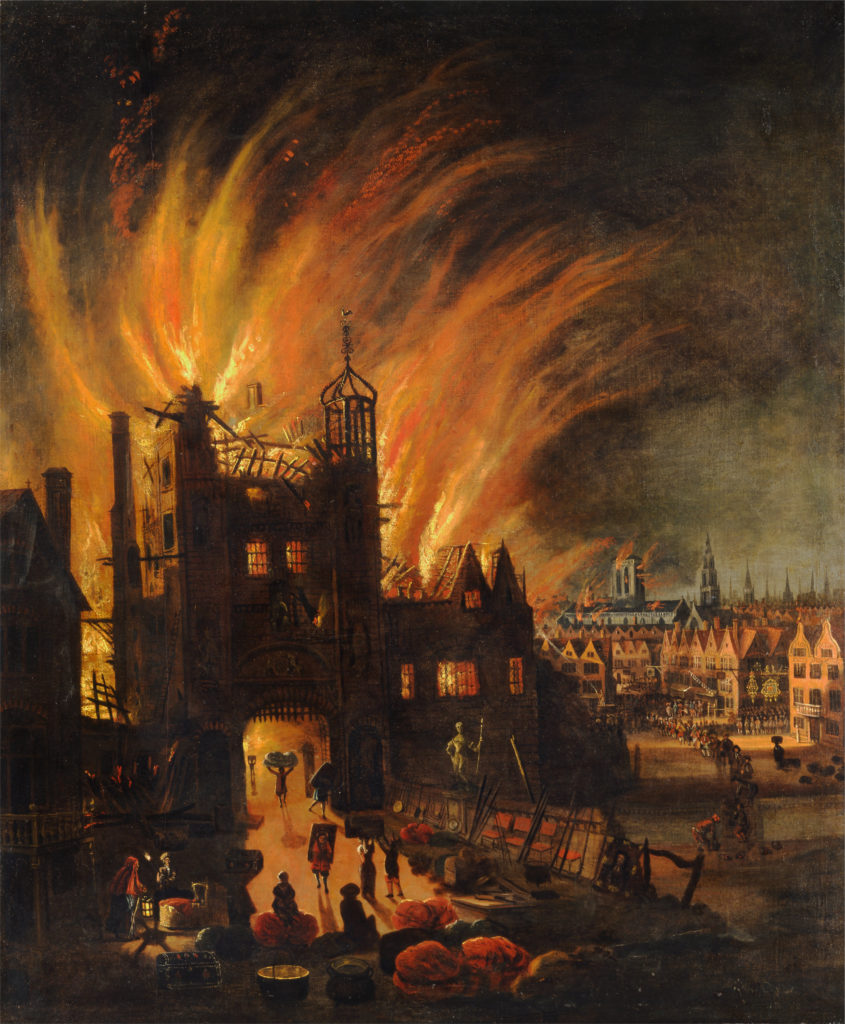
From History Answers:
In the small hours of Sunday 2 September 1666, Samuel Pepys, Secretary to the Navy, was roused from his bed with news of a fire burning several streets away. He went to a window of his house close by London’s east wall and looked out over the city. There was, indeed, a conflagration over towards Billingsgate, but these outbreaks were quite common in the narrow streets and timber-framed houses of the capital. Pepys decided that there was nothing to worry about and returned to bed. He needed his sleep. He – and England – had enough problems to worry about without a little fire in overcrowded London city.
After all, the nation was divided and discontented and the existing government was highly unpopular. More than six years had passed since the return of Charles II from exile in Europe and the restoration of the monarchy after the republican rule of Oliver Cromwell. The myth of England being delivered from gloomy, oppressive Puritan rule by the ‘Merry Monarch’ is well ensconced in popular perception but it is a myth. It did not take long for the mood of the capital and the country to change as the policies of the new government were implemented.
If a week is a long time in politics, six years may seem like an eternity. Throughout the country people had seen royalist landowners settling scores with neighbours and tenants who had sided with the parliamentarians in the Civil War. The bishops, now installed or re-installed in their dioceses, rigorously enforced the new religious settlement and, as a result, 2,000 clergy who could not accept the ‘high church’ doctrines and ceremonies of the new regime were turfed out of office. Charles, who had learned his politics the hard way, was not totally behind the policies of the Restoration Parliament. He knew the importance of toleration. The French, among whom he spent most of his adult life, had a saying: ‘ne reveillez pas le chien qui dort’ – ‘don’t rouse the sleeping dog’ – and it expressed a philosophy close to Charles’ heart. However, too many of his followers were set on revenge. (Read more.)Share


















No comments:
Post a Comment